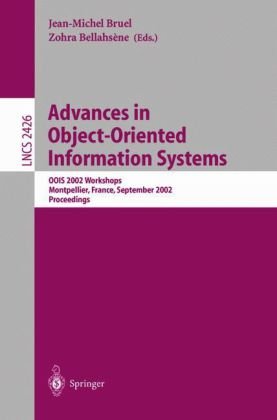

Most ebook files are in PDF format, so you can easily read them using various software such as Foxit Reader or directly on the Google Chrome browser.
Some ebook files are released by publishers in other formats such as .awz, .mobi, .epub, .fb2, etc. You may need to install specific software to read these formats on mobile/PC, such as Calibre.
Please read the tutorial at this link: https://ebookbell.com/faq
We offer FREE conversion to the popular formats you request; however, this may take some time. Therefore, right after payment, please email us, and we will try to provide the service as quickly as possible.
For some exceptional file formats or broken links (if any), please refrain from opening any disputes. Instead, email us first, and we will try to assist within a maximum of 6 hours.
EbookBell Team

4.1
100 reviewsFor the ?rst time four workshops have been held in conjunction with the 8th Object-Oriented Information Systems conference, OOIS 2002, to encourage - teraction between researchers and practitioners. Workshop topics are, of course, inline with the conference’s scienti?c scope and provide a forum for groups of researchers and practitioners to meet together more closely and to exchange opinions and advanced ideas, and to share preliminary results on focused issues in an atmosphere that fosters interaction and problem solving. The conference hosted four one-day workshops. The four selected workshops were fully in the spirit of a workshop session hosted by a main conference. Indeed, OOIS deals with all the topics related to the use of object-oriented techniques for the development of information systems. The four workshops are very speci?c and contribute to enlarging the spectrum of the more general topics treated in the main conference. The ?rst workshop focused on a very speci?c and key c- cept of object-oriented development, the specialization/generalization hierarchy. The second one explored the use of “non-traditional” approaches (at the edge of object-oriented techniques, such as aspects, AI, etc.) to improve reuse. The third workshop dealt with optimization in Web-based information systems. And ?nally the fourth workshop investigated issues related to model-driven software development.